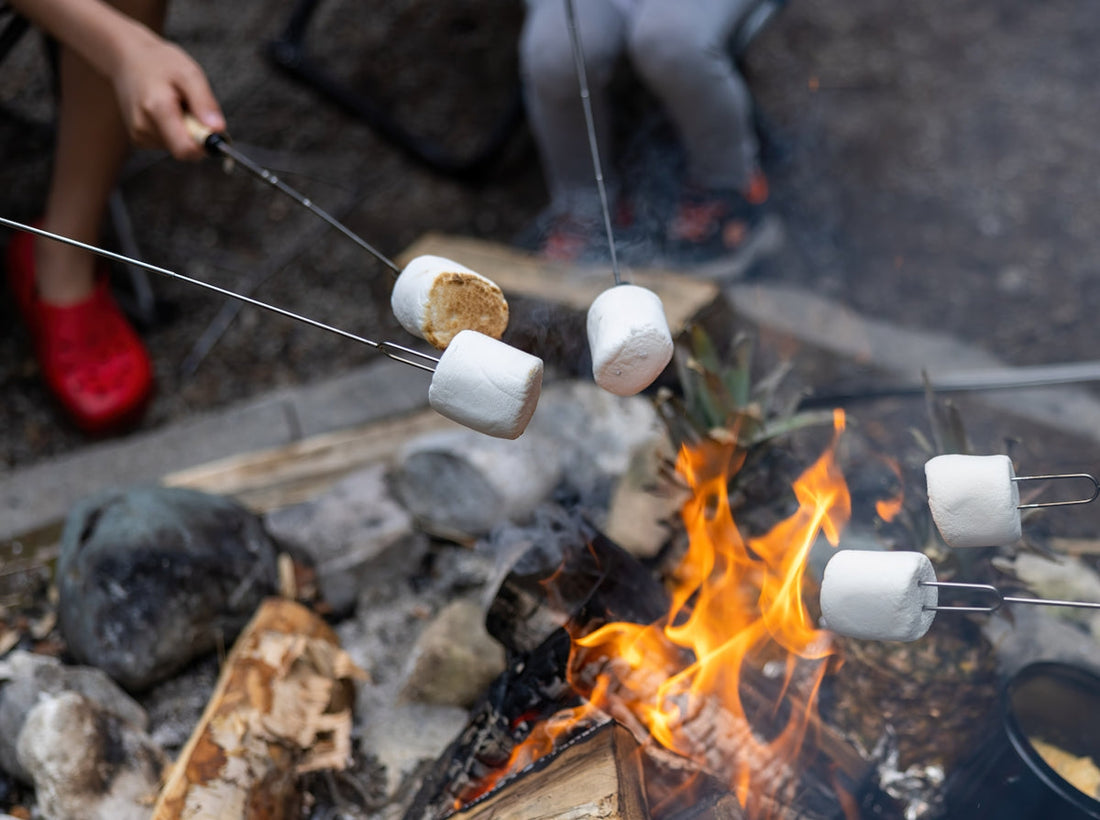
Common Campfire Cooking Problems and Simple Solutions
Share
Campfire cooking is often seen as one of the most enjoyable and communal activities on a camping trip. Nothing quite matches the experience of roasting marshmallows, grilling fresh fish, or preparing a pot of chili under the open sky. However, like any cooking endeavor, it often comes with its own set of challenges. From pesky insects intruding on your culinary space to food sticking to pans, campfire cooking can test even the most prepared outdoor enthusiast. In this post, we will explore common campfire cooking problems and offer simple solutions to ensure your outdoor dining at the campsite remains a delightful experience.
Problem 1: Food Sticking to Cookware
Solution: Season and Use the Right Cookware
One of the most common problems when cooking over a campfire is food sticking to cookware. This can generally be avoided with proper seasoning and the use of the right equipment. A cast iron skillet for camping is an invaluable tool recognized for its natural non-stick properties when properly seasoned. Season your skillet by lightly coating it with vegetable oil and heating it over the fire until it smokes. Repeating this process ensures a protective surface to prevent food from sticking.
Additionally, investing in high-quality campfire cooking gear such as well-seasoned cast iron skillets and grates helps alleviate the problem of food sticking. Cast iron retains heat evenly and adds a distinct flavor to your dishes, enhancing the entire outdoor dining experience.
Problem 2: Uneven Cooking Temperature
Solution: Mastering Fire Management
Managing a fire to ensure consistent temperature is crucial. Often, beginners light a roaring fire, not realizing that the intensity of direct flames is not conducive to cooking. The optimal scenario is cooking over glowing embers or charcoals, as they provide a steady temperature.
Campfire Cooking Tips:
- Stack Your Wood Correctly: Use the cross-stacking method to allow for good airflow and even burning.
- Use Coals: Wait for the wood to burn down into coals before starting to cook.
- Fire Rings: Utilize fire rings, as they help contain the heat and create a more controlled environment for cooking.
Problem 3: Pests and Insects
Solution: Natural Repellents and Preventative Measures
Insects and pests can drastically affect the pleasure of an outdoor meal. Fortunately, there are several effective ways to keep them at bay.
Consider using Volt Insect Defender – DEET-Free Plant-Based Outdoor Spray, which is family-friendly and made with natural essential oils. It offers a pleasing scent without the harsh chemicals. Another option is the US Organic Mosquito Repellent, providing proven results with its certified organic formula.
For additional protection, utilize Mosquito Repellent Bracelets, which offer long-lasting protection. These adjustable leather accessories are crafted to fit comfortably on your arm and release a subtle repellent aroma.
Problem 4: Maintaining a Clean Cooking Space
Solution: Invest in Camping Kitchen Essentials
Maintaining a clean cooking space is vital not only for hygiene but also to prevent wildlife from being attracted to your camping area. Here’s how you can keep things tidy:
- Portable Sinks and Basins: Use collapsible or portable sinks that allow you to wash dishes and hands easily.
- Biodegradable Soap: Opt for eco-friendly soaps that are kind to the environment.
- Proper Storage: Use airtight containers to store food and reduce odors that might attract wildlife.
Investing in these camping kitchen essentials can make a tremendous difference. Also, always carry trash bags for waste disposal to maintain cleanliness and protect the environment.

Problem 5: Food Spoilage
Solution: Efficient Food Storage Solutions
Keeping food fresh without refrigeration is a challenge when camping. To combat this, plan meals that use non-perishable ingredients or are consumed on the first day. Additionally, utilizing high-quality coolers and ice packs to maintain low temperatures can significantly reduce the risk of food spoilage.
A tip for extending the life of your cooler’s contents is to pre-chill the items and the cooler itself before departure. Pack the cooler tightly to limit air spaces and maximize coolant efficiency.
Conclusion
Campfire cooking, with its array of challenges, also brings immense rewards. By adopting the right techniques and tools, such as a seasoned cast iron skillet for camping and reliable campfire cooking gear, you can transform common obstacles into manageable tasks. Moreover, safeguarding your experience with insect repellents like the Volt Insect Defender or US Organic Mosquito Repellent, alongside investing in crucial camping kitchen essentials, ensures your campfire cooking remains a delightful adventure. Enjoying outdoor dining at the campsite has never been more accessible or rewarding with these simple solutions.
For more tips, gear, and accessories to enhance your camping experience, visit PackStead, your reliable partner in outdoor adventures.
